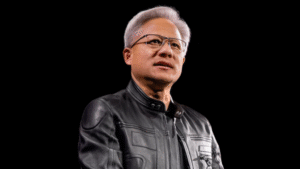New York — TikTok, the short-form video platform that has become a global cultural touchstone, is facing an uncertain future in the United States. A federal appeals court has upheld a law requiring the platform to separate from its Chinese parent company, ByteDance, by January 19, 2025, or face a nationwide ban. The ruling has sent shockwaves through the digital world, raising critical questions about free speech, national security, and the role of global technology companies in the U.S. market.
For TikTok’s 170 million American users, the stakes are extraordinarily high. The platform has evolved into much more than a source of entertainment; it is a vital tool for creative expression, small business growth, and personal connection. The proposed ban would disrupt this ecosystem, forcing app stores to remove TikTok from their platforms and cutting off future updates for existing users. Over time, the app would become obsolete, leaving a void in the social media landscape that few alternatives could fill.
TikTok’s leadership has made it clear that the fight is far from over. The company has announced plans to appeal the ruling to the Supreme Court, arguing that the law violates constitutional protections of free speech. TikTok spokesperson Michael Hughes described the potential ban as a “devastating blow” to the millions of users who rely on the platform, warning that the move would stifle creativity and innovation across the globe. Despite these declarations, TikTok has stood firm in its refusal to divest from ByteDance, a decision that has deepened the divide between the company and U.S. policymakers.
The road to the Supreme Court is fraught with uncertainty. Legal experts have noted that the Court’s conservative majority is likely to approach TikTok’s arguments with skepticism, particularly given the national security concerns cited in the case. Even with an expedited timeline, which could see the case heard in early January, the outcome is far from guaranteed. TikTok may request a stay to delay enforcement of the ban, but success on this front is not assured, leaving the platform’s future in precarious balance.
Meanwhile, the political landscape offers a potential, though tenuous, lifeline. President-elect Donald Trump, once a fierce critic of TikTok, has recently expressed support for the platform, stating in a TikTok video that he would “never ban” the app. However, with the ban set to take effect just before his inauguration, Trump’s ability to intervene is limited. His options include signaling non-enforcement of the law or using executive authority to reinterpret its provisions, but both approaches carry significant legal and practical risks.
The uncertainty surrounding TikTok’s fate has had a profound impact on its user community, which spans content creators, small business owners, and everyday consumers. For influencers like Carrie Berk, the potential loss of TikTok is a personal and professional blow, threatening a key source of income and audience engagement. Others, such as strategist Keenya Kelly, remain hopeful that TikTok’s economic significance will ultimately protect it from a full ban. Nevertheless, many creators are beginning to explore alternative platforms, though replicating TikTok’s distinctive user experience and monetization capabilities presents a significant challenge.
As TikTok navigates this period of upheaval, its story has become emblematic of larger issues at the intersection of technology, geopolitics, and societal values. Whether the platform survives the current crisis or becomes a casualty of international tensions, the outcome will have far-reaching implications for the future of digital culture and governance in the United States.









